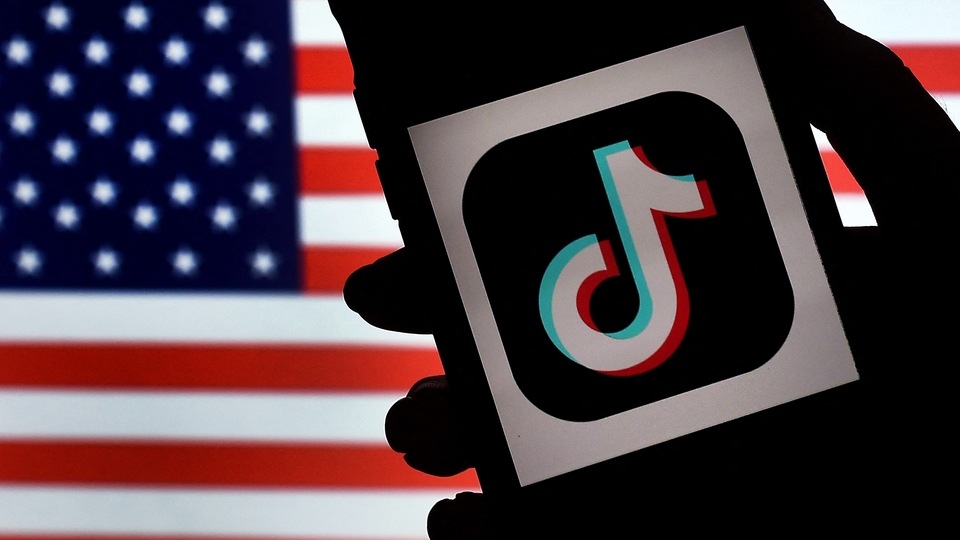Mean Girls TikTok Stunt Is a Red Flag for Writers
After Paramount Pictures put the entire film from 2004 on social media for free, studios may have a new fight on their hands over fair compensation.


The internet loves nothing more than seizing on the dialogue of a beloved work of popular culture and turning it into a day of online celebration, which is why we have “Star Wars Day” on May the 4th (“May the force/fourth be with you”), “Miss Congeniality Day” on April 25th, and “Rex Manning Day” on April 8th. And, along those lines, October 3rd has become “Mean Girls Day,” thanks to a line in the film where Lindsay Lohan says, “It's October 3rd.” (It's best not to overthink these things.) And so, on social media on Tuesday, lines were quoted, memes were shared and the film's alums weighed in. Oh, and Paramount Pictures put the entire movie on TikTok.
This is not entirely unprecedented in the platform's history. Like YouTube before it, TikTok has long been populated by fans (or pirates, depending on how you want to look at it) uploading clips of wildly divergent quality from their favorite films and TV shows — often television episodes and movies in their entirety, albeit confined by varying maximum clip lengths.
We are now on WhatsApp. Click to join
The difference between typical TikTok piracy and Paramount's Mean Girls upload is that the copyright holder did it this time. It's the first instance (to our knowledge) of a major studio chopping up and dropping a full-feature film on that platform. The move freed the stunt — intended solely for “Mean Girls Day,” as the videos were removed by the end of October 3 — from questions of copyright violation.
But there is another, more pressing question. One that should remind the Writers Guild of America to be careful of spending too much time dancing in the end zone after their hard-fought win against studios last month.
It comes down to this: Will the Mean Girls TikTok upload warrant a new conversation about how residuals are paid out to actors and writers much sooner than expected?
I'm far from the first person to wonder about the possible conflict. In August, when NBC's Peacock made full episodes of Killing It available on TikTok, strike captain Caroline Renard asked a reasonable question on X (formerly Twitter): “Hmmmm. Are we accounting for whole a-- episodes of TV being uploaded on TikTok and Twitter in our contracts now?”
As the appetite for legacy entertainment grows — even on platforms dominated by social media creators — getting an answer will be in the best interest of Hollywood unions.
The problem with studios uploading content to TikTok isn't necessarily unique to present-day; in fact, Paramount's Mean Girls move is more reminiscent of a concern from the last WGA strike in 2007-2008.
Back then, streaming residuals were not yet a contractual factor. Netflix's House of Cards, the first streaming series of note, was still five years away, and the old television residual paradigm (work on a show, make it enough of a hit to last at least four seasons and go into syndication, live off those residuals) was still in play. But one of the issues of the earlier strike was the lack of compensation for studio-sanctioned promotional material.
At the time, The Office writers and producers shed some light on the situation in a short WGA video. “In our second season, we were asked to write webisodes,” said Mike Schur. “And we wrote 10 original webisodes, the whole writing staff wrote them … and eight or nine of our series regulars acted in them, and they were all put on NBC.com, and they sold ads. And they're still available at NBC.com, and they're still selling ads. And we won a Daytime Emmy for those webisodes.” Mindy Kaling chimed in to note that no one was compensated for it.
“In a sense, that's what we're striking for,” Paul Lieberstein added. “We just wanna be paid fair for our promotions.”
He got a laugh by calling these webisodes “promotions”; obviously, the time put into them and the end results amounted to more than just an advertisement for the television series.
The limited-time upload of Mean Girls to TikTok was essentially a promotion for the film, striking at a moment when it was top of mind for many fans and for those finding out about the film (and the October 3rd reference) for the first time.
Whatever word you call it, it still amounts to work — which should be fairly compensated at all times. In an email, a representative for Paramount Pictures said talent would be paid residuals pursuant to the applicable collective bargaining agreement for this use of the original Mean Girls film on TikTok. And the massive social media response to its appearance there presumably helped drive viewers back to streaming platforms to rewatch the movie. The newly won residual payout agreement between the WGA and the studios could mean this was a win for both sides.
But one thing is certain in all of this: Those who own popular films and television shows will continue to find new ways to make money off them. And from that perspective, it's worth calling the WGA's strike victory not an end to these struggles but another chapter in them. The kind of aggressive demands, debate and labor actions that were required by this year's conflict will continue to be necessary as long as new technology and new trends create new challenges for properly compensating writers, directors and actors for their work.
More From Bloomberg Opinion:
- The Writers Guild Had a PR Strategy Like No Other: Jason Bailey
- Hollywood Can't Fight TikTok But Can Use It: Bobby Ghosh
- Does Hollywood Know That Writers Can't Pay Bills With ‘Love'?: Kim Kelly
This column does not necessarily reflect the opinion of the editorial board or Bloomberg LP and its owners.
Jason Bailey is a film critic and historian whose work has appeared in the New York Times, Vulture, the Playlist, Slate and Rolling Stone. He is the author, most recently, of 'Fun City Cinema: New York City and the Movies That Made It.'
One more thing! HT Tech is now on WhatsApp Channels! Follow us by clicking the link so you never miss any update from the world of technology. Click here to join now!
Catch all the Latest Tech News, Mobile News, Laptop News, Gaming news, Wearables News , How To News, also keep up with us on Whatsapp channel,Twitter, Facebook, Google News, and Instagram. For our latest videos, subscribe to our YouTube channel.

























